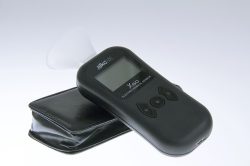U.S. Drunk Driving Threshold May Be Lowered to Reduce Fatality Rates
Every 49 minutes in the U.S., a person dies from an alcohol-impaired driving accident. Alcohol-impaired driving is entirely preventable, yet continues to kill about 10,000 Americans every year. In an effort to reduce the number of deaths caused by alcohol-impaired auto accidents, the National Academy of Sciences, Engineering, and Medicine released a report proposing that the nationwide drunk driving threshold be lowered from a blood-alcohol concentration of 0.08 to 0.05.
Fighting to Lower the Alcohol-Impaired Driving Death Toll

The NASEM study suggests the BAC should be lowered to 0.05 to reduce alcohol-impaired driving rates.
The NASEM study, which was funded by the National Highway Traffic Safety Administration, proposes a number of reforms in addition to lowering the drunk driving threshold. Study author Steven Teutsch says new reforms are needed because the number of alcohol-impaired driving deaths have been consistent in recent years — indicating that existing methods to prevent these deaths are no longer working. In addition to lowering the BAC limit, the NASEM report proposes funding anti-alcohol awareness campaigns, increasing taxes on alcohol, and restricting the days and hours during which alcohol can be purchased.
At present, there are 49 states in which the BAC threshold is 0.08. Utah is the only state with the BAC limit lowered to 0.05, which was only recently passed into law in December 2017. Researchers at the NASEM say there is a viable amount of evidence showing that reducing the BAC limit to 0.05 nationwide will have a positive impact on reducing the number of deaths caused by alcohol-impaired driving accidents.
Ways to Prevent Binge Drinking
There are several variables that determine the amount of alcohol you must drink to reach a BAC of 0.05. The NASEM report says women who weigh over 120 pounds can reach this threshold with two alcoholic beverages, while men who weigh more than 180 pounds can achieve the threshold with three drinks.
Binge drinking and alcohol abuse almost always lead to intoxication, and increase your risk for drunk driving and alcohol-impaired auto accidents. One in every six U.S. adults binge drinks about four times per month, and consumes about eight drinks per binge.
Common signs of binge drinking:
- Drinking more than you initially intended
- Consuming at least 5 drinks within 2 hours if you’re male, or at least 4 drinks within 2 hours if you’re female
- Feeling the urge to keep drinking
- Experiencing blackouts or gaps of memory loss while drinking
- Exhibiting violent, aggressive, or dangerous behaviors while drinking, such as driving while impaired
The best ways to prevent binge drinking are to drink slowly and limit your intake, or abstain from drinking alcohol completely.
Other ways to prevent binge drinking:
- Avoid participating in drinking games and competitions
- Drink only with friends and family who won’t encourage you to binge drink
- Avoid parties and events where drinking is the main focus
- Keep a “drink” journal to track the amount of alcohol you consume, and how it affects you
- Identify your drinking triggers, and learn how to cope with them
Benefits of an Alcohol Detox Treatment
Binge drinking on a regular basis is dangerous, and can eventually turn into a habit that leads to problems with dependence and addiction. An alcohol detox helps you overcome physical dependence on alcohol so you no longer experience alcohol cravings and other withdrawal symptoms when you’re not drinking. Detox is the first stage of treatment for any substance use disorder, and helps you achieve improved physical and mental health after being dependent on alcohol.
Today’s alcohol detox treatments are safer than ever, and are usually overseen by experienced, licensed medical staff at a hospital or inpatient detox center. A medical detox from alcohol can lower your risk for insomnia, seizures, and heart complications, which are more common in people who have been drinking heavily for many years. You may even be prescribed medications that can reduce certain symptoms of alcohol withdrawal, along with medications that eliminate alcohol cravings.
If you need an alcohol detox to quit drinking and become healthier, call our 24/7 confidential helpline at 800-996-6135 . Our caring addiction counselors will help you find the nearest alcohol detox center so you become healthier and addiction-free.

